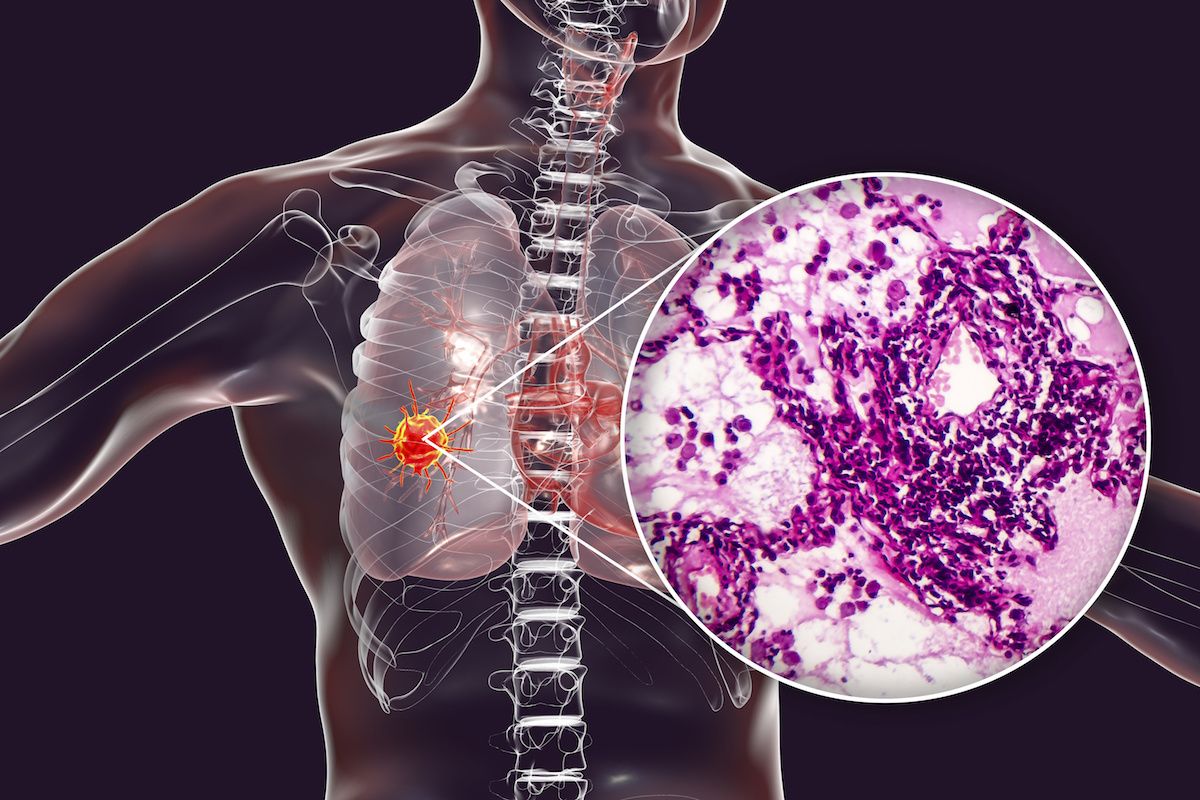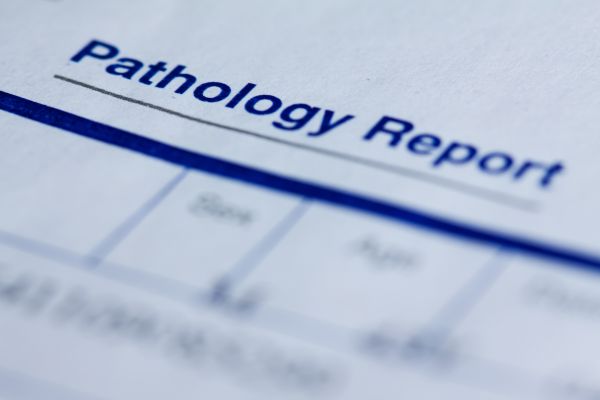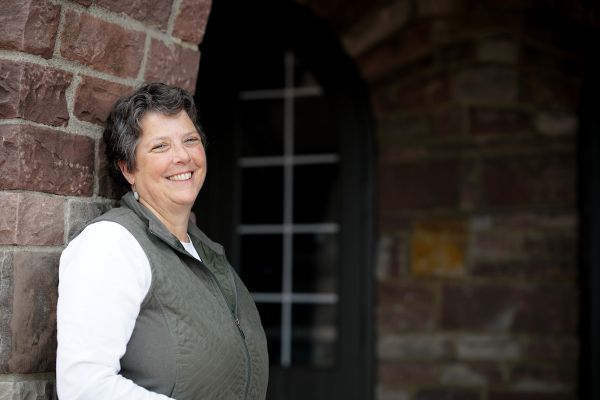Why it matters that cancer specialists perform the procedure and pathology analysis
Whether it’s a lump or a mass where there shouldn’t be, a shadow on an X-ray or scan, or an unusual-looking mole, polyp or lesion, any suspicion of cancer is unsettling. But for most cancer types, a cancer diagnosis isn’t a diagnosis until a biopsy says it is — and everything that follows hinges on that biopsy.
A biopsy is a procedure that collects a sample of tissue or cells from a suspicious area, mass or lymph node for examination and testing by a pathologist. It’s the pathologist who determines if cancer cells are present, and if so, the specific type, subtype, grade and other distinguishing features — in essence, the definitive diagnosis. Then the cancer care team — the surgeon, medical and radiation oncologists along with the pathologist and other specialists — develop the treatment plan based on the findings of that biopsy.
But many biopsies are tricky and, if done improperly, can yield incorrect results or a misdiagnosis. “There are two extremely important parts to every biopsy — the skill and knowledge of the practitioner who obtains the sample, and the skill and knowledge of the pathologist who examines the sample,” says Gissou Azabdaftari, MD, former Associate Professor of Oncology and Chief of Cytopathology at Roswell Park.
Read these five reasons why a cancer specialist should perform and interpret your biopsy:
1. Cancer-specific expertise and experience
“The field of medicine changes so fast and it’s important to seek a biopsy from an expert who is up to date with the latest research and the latest methods,” says Dr. Adabdaftari. At Roswell Park, biopsies are performed by cancer-focused surgeons, interventional radiologists, endoscopists and pulmonologists and interpreted by cancer-specialized pathologists who are trained to read cancer tissue slides and make a diagnosis. “The training and experience of the doctor performing the biopsy is crucial,” says Nathaniel Ivanick, MD, Assistant Professor of Oncology and an interventional pulmonologist at Roswell Park. “For example, our accuracy in sampling lymph nodes leads to decisions about whether or not a patient is eligible for curative surgery.”
“While all of our twenty-plus pathologists are fully trained for all disease sites, we each choose one to three subspecialties or organ systems to focus on,” adds Dr. Azabdaftari. “If the result is that it’s not cancer, let the cancer experts tell you it’s not cancer so that you can know that with confidence.”
2. Preventing tumor “spill”
An improperly performed biopsy can cause some cancer types, such as a sarcoma, to spread. These tumor types have fragile outer capsules that contain the cancer cells into a mass. If the outer capsule is damaged during biopsy or an operation to remove it, cancer cells can “spill” from the tumor, allowing them to spread or regrow. These types of tumors should be removed and biopsied only by a highly skilled and experienced surgeon who specializes in these types of cancer.
3. Better, safer, minimally invasive techniques
Cancer specialists have access to state-of-the-art techniques and equipment not available at other facilities, and the expertise to use them. For example, Roswell Park is the only center in the region with minimally invasive endoscopic ultrasound (EUS) to obtain biopsies and stage esophageal, pancreatic, rectal and other gastrointestinal cancers.
For lung and other suspected cancers in the chest, video-assisted thoracic surgery (VATS) offers a less-invasive approach to view and obtain tissue samples from hard-to-reach thoracic areas and lymph nodes close to critical blood vessels such as the pulmonary artery and aorta. Other specialized capabilities, such as endobronchial ultrasound and navigational bronchoscopy, can biopsy lung lesions and nodules without the need for major surgery, explains Dr. Ivanick. “But these procedures require excellent familiarity with biopsy technique and the various instruments to have confidence in the answer the biopsy provides.”
Never miss another Cancer Talk blog!
Sign up to receive our monthly Cancer Talk e-newsletter.
Sign up!4. Ensuring the accurate location is biopsied
“Even so, cancer biopsies are serious procedures that might require anesthesia,” explains Dr. Azabdaftari. “You want to get it right the first time. And that takes specific experience and knowledge.” At Roswell Park, the pathologists work with the surgeons, oncologists, and diagnostic and interventional radiologists every day. An on-site cytopathologist attends many biopsies to ensure it’s the right tissue, the right lesion or cells and that there’s enough of it to render a diagnosis. Oftentimes, the pathologist performs the analysis during the surgical procedure, so that the surgeon can learn whether additional structures, lymph nodes or organs need to be biopsied or removed at that time.
5. Getting an adequate sample size
The biopsy needs to produce enough tissue for thorough examination and all the laboratory tests essential for an exact diagnosis. Roswell Park performs additional testing, such as molecular testing, fluorescence in situ hybridization (FISH) studies, immunohistochemistry analysis and cytogenetics to learn more about an individual’s cancer. These tests analyze the cancer cells’ genes and other unique characteristics that may indicate a specific cancer subtype, how aggressive the cancer will be, which targeted therapies or immunotherapies may treat it most effectively, or whether the patient is eligible for a clinical trial. “If the biopsy sample is not sufficient to accurately interpret the findings for a precise diagnosis, it will need to be repeated. This leads to uncertainty and anxiety for the patient and can delay proper treatment,” says Dr. Azabdaftari.
Can I Get a Second Opinion on a Biopsy?
Yes. If you’ve had a biopsy done elsewhere, Roswell Park’s pathologists can review the sample and test results and have the results ready for the physician at your initial consultation. Called a “secondary review,” this type of second opinion is very important because in a number of cases, the diagnosis is changed or upgraded or downgraded. Roswell Park performs more than 8,000 secondary reviews of pathology performed elsewhere each year, finding a change in diagnosis that may affect treatment in 11% to 18% of cases. “Before you make any decision about your treatment plan, let us look at that biopsy for you,” says Dr. Azabdaftari.




